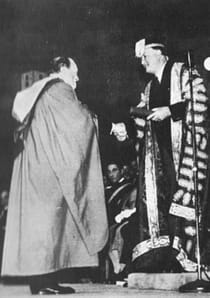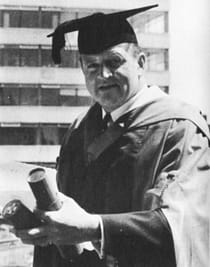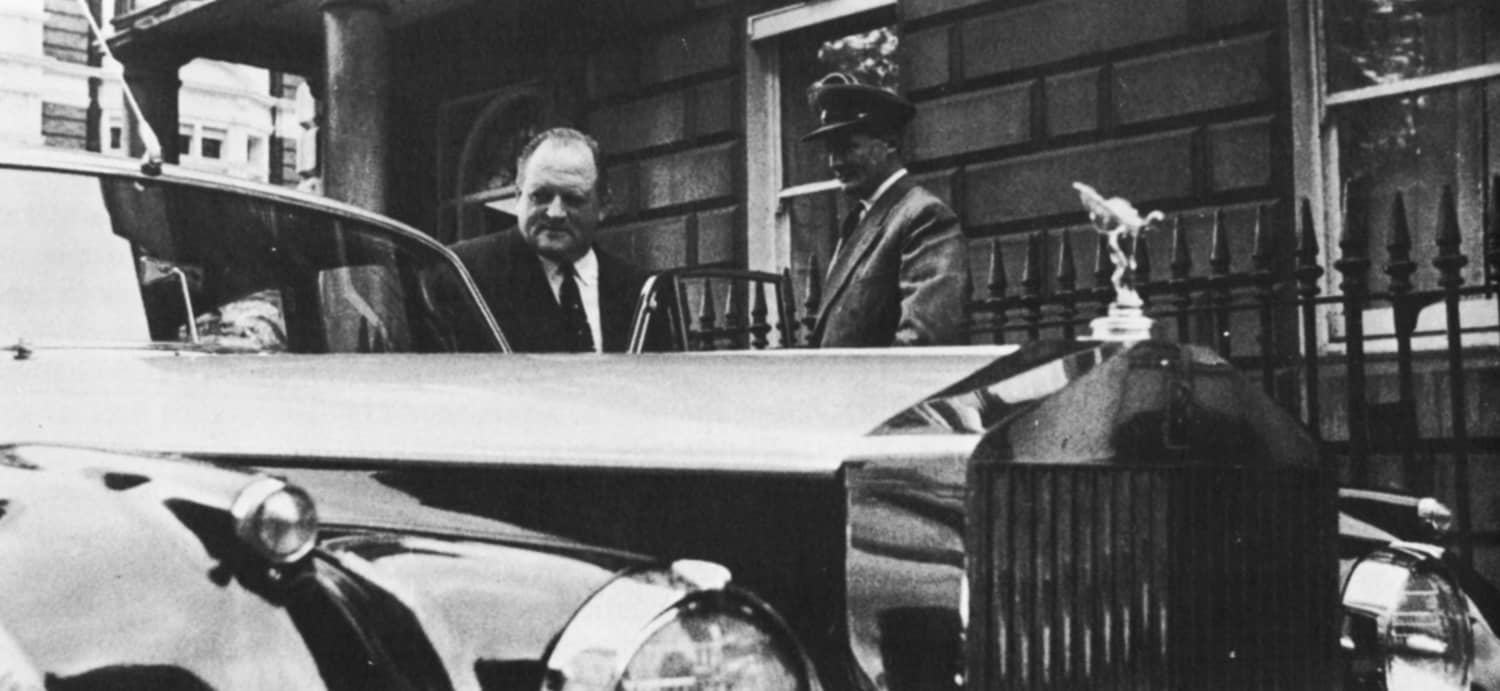Dimbleby had been disappointed at missing a university. He was particularly gratified when the University of Sheffield decided to award him the honorary degree of Doctor of Laws in July 1965.
The Public Orator, Professor Laughton, presented him to the Chancellor, Lord Butler of Saffron Walden, who had frequently met Dimbleby in the Panorama studio, with these unwittingly prescient words:
If a national opinion poll were to be held, to discover the personality whose disappearance from the television screen would leave the largest gap, the nation’s choice might well fall on Richard Dimbleby. In the event of such a calamity, severe as would be the loss (especially on Monday evenings) of that expansive and reassuring presence, it would be still more grievous to lose the voice which for a quarter of a century, at great moments in our history, has expressed the thoughts and feelings of Everyman.
To some of us that voice first became familiar during the War, reporting from battlefields and bringing to the listener at home a new sense of immediacy and involvement. As first BBC war correspondent, Dimbleby served in many areas, and by 1945, when he entered Berlin with British troops, he was marked out as a commentator of singular talent and resourcefulness. Hence, though he left its staff in 1945, the British Broadcasting Corporation has continued to enlist his services, especially in the television presentation of many historic occasions, ranging from the ceremonial pomp of a Coronation or the moving solemnity of a State funeral to the organised chaos of a General Election. To these and other assignments, where faulty timing or a single false note would have been disastrous, Dimbleby has invariably brought skill and imagination in handling his material, an utterance fluent and appropriate, free alike from rhetoric and from bathos, retaining – even off the record – the directness and simplicity of the Authorised Version, and withal an imperturbability which is not disconcerted when Queens are late or Early Birds fail to materialise.
Dimbleby’s art is so effectively concealed that it sometimes receives less than its due. Those who criticise him for leaning towards the Establishment are in fact complimenting him on his unfailing ability, at a given moment, to make articulate the feelings of most of his audience. The apparent ease with which he fills out his narrative, whenever necessary, with apt information comes not merely from quickness of mind, but from the careful preparation of a craftsman, born and trained in the newspaper world, who takes a professional pride in thorough workmanship.
A believer in order and tradition, he is no mouthpiece of received opinion, as his own programme Panorama makes evident each week. He enjoys the good things of life, including the largest car ever seen outside the portals of Television Centre, with a liveried chauffeur who, it is said, is normally a good deal smarter than his employer.
If our ceremony today be regarded as an acknowledgment of the contribution which television can make to education in the widest sense, let it not escape notice that we have chosen for honour a man to whose good taste and integrity, no less than to his exceptional talents, television in this country owes much of its high repute.
Chancellor, I present to you Richard Dimbleby, as eminently worthy to receive the Degree of Doctor of Laws honoris causa.
The University entertained the honorary graduates to lunch before continuing with the Degree Congregation in the afternoon. One who was present recalls:
‘Because of the shortness of time, it was not intended that there should be any speeches, but when the toast of the honorary graduates was proposed by the Vice-Chancellor and drunk by the company, which included most of the senior members of staff and their wives, it became clear that a speech must be forthcoming. All eyes turned to Dimbleby, and a rattling of cutlery became louder and more insistent. Eventually he was drawn to his feet by this spontaneous demonstration of friendliness and regard, and spoke briefly and elegantly, and with great sincerity. It was a beautiful piece of impromptu utterance, perfectly adapted to the occasion.’
As Richard stepped into his car to depart Arthur Howick, the liveried chauffeur mentioned in the citation, and a man to whom Richard was devoted, happily addressed him as ‘Dr Dimbleby ’.



